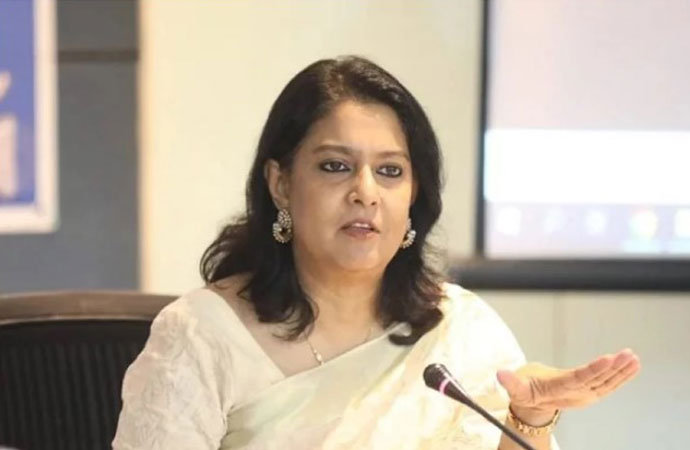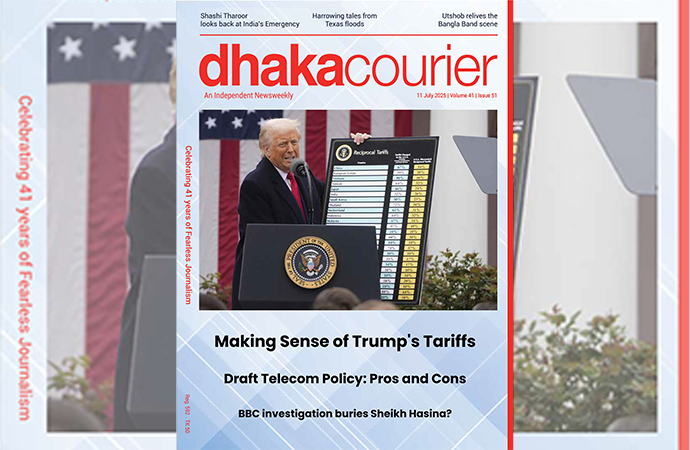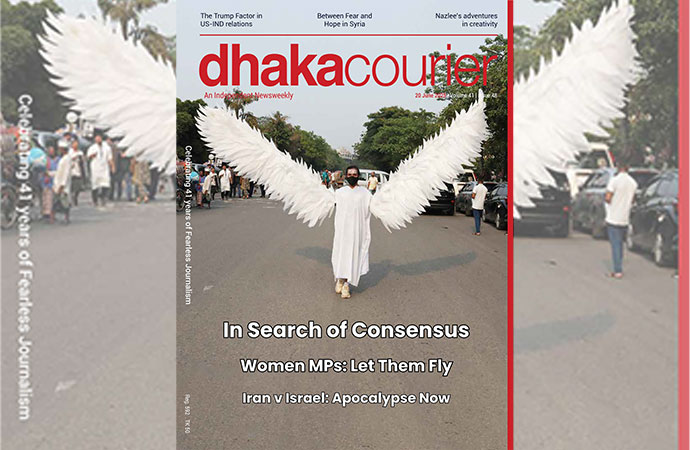Featured 2

Photo: Collected
It seems the Government has decided to move to take action against private sector corruption going by the reports of cracking down on some e-commerce outfits. These outfits existed before but accelerated in the corona period spotting the public's increased dependence on such platforms. Like most things in Bangladesh, where there is commerce, can corruption ever be far behind? This year, all the scams started coming to light one after another - in fact they still are. Everyday there is a new one duly reported by the media, especially social media.
Now the authorities have taken some steps but then the track record of fighting corruption is so poor that not much confidence exists in the scams being behind us.
What it essentially says is that the business environs in Bangladesh are corruption-friendly, mirroring the public sector and anyone can be so without losing any social capital. This is because the structure is designed to promote corruption as the profits are not expected to be limited to the investment return or the investors only. There are other stakeholders in any business including the regulators.
The regulatory sector has been proficient in facilitating corruption and preventing an effective regulation regime. The key to low corruption is high supervision and in this case the key missing link is here. The authorities have failed to prevent what has become natural to rogue elements.
The Evaly model and other variants
Md Rassell was the archetype of these new white collar criminals, and not surprisingly many shed tears for their dear Rassell bhai, when his game was finally up. He was a beacon of hope for a generation of new fraudsters and created a lot of media buzz. It was taking people's money off their hands by offering massive discounts against advance payments. E-shoppers say the platform in its first year was not involved in any of the nefarious practices it would eventually get mired inn. Evaly's position has been that even if delayed, it would absolutely honour the sales already made on its platform by delivering the items as well - but for that the company needed to remain operational, and Rassell needed to stay out of prison. But he had used up all his luck (plus his wife's and a few other family members' too, probably) and despite some valiant efforts near the end, including that claim of Tk 1000 crore as investment from Jamuna Group, that surely would have been the jewel in his crown of fraud.
The Evaly model is the typical Ponzi scheme where consumers' money feeds the business and new money is used to pay earlier ordered goods. It's a sort of MLM and always crashes. Since client interest was huge the money scale was large too, more people, more money, more promises and then the chain breaks and countless punters are left counting their losses.
The future of fraud and corruption in this sector is large and as demand grows so will the scams, forgery and corruption. In fact, the e-commerce sector is the new frontier for corruption as public demand will grow naturally and so will the transactions. That of course means more corruption. So even if someone is worried about the potential for corruption, most are happy that a new opportunity is opening up for the private sector to steal more.
Public reaction and official response
Bangladesh is in denial about its major crisis which is inefficiency. The skill level of the regulators is low and so they are unable to prevent corruption even if they want to. They don't know how to do it and are not exactly energetic about protecting the public interest. It's not their fault as the economic system- crony capitalism- is based on this model of corruption breeding. In this system, both felonious intent and incompetence work jointly to produce corruption.
Law and order issues are linked to crimes that are caught and not prevention. Hence the question of protection of consumers doesn't begin after the crime is committed but before. However, in Bangladesh, it's always about arresting a select group of people by specialised law enforcement agencies accompanied by tv cameras and a lot of noise followed by nothing, or just the next scam.
It's tough to ignore the argument that it's all for public consumption because corruption has not declined since it all began. One way or other the criminals are close to the power centres and they are far more influential than the consumers. So the big show is to appease the angry public, arrest criminals, remand them and get charge sheets in some cases and then forget it because by that time the public is ready for another scam.
So if one is crony capitalism, the other is public gullibility. Both show they are robust and here to stay. And it's on this basis that the future needs to be understood.
The future?
The following may be the future trends which we shall see increasing.
- The e-commerce sector will grow rapidly as public demand will outstrip supply. It will expand into new sectors including services. Almost all the avenues will be operationalised including informal banking.
- Given that the Government is reducing interest rates on savings certificates, a new area that may emerge will be digital banking and investment companies. Naturally, the potential for scamming will be high with the long experience.
- New regulations may be introduced by the GOB to further complicate matters as each regulation will mean more money in return for services.
- GOB will encourage the e-commerce sector and the public will also be very interested. New products and news services will be introduced and new assurances of transparent dealings will be made.
Basically, corruption has received a boost in the arms due to large scale arrival of the e-sector and the public should be ready for getting whacked, in return for all the theatre that will keep them entertained.
Corruption is here to stay.

























Leave a Comment
Recent Posts
The Northeastern Question
When secessionist movements sprang up across the Eastern European part ...
Trump’s Tariff: How far should ...
Will Bangladesh manage to get a last minute reprieve on its 'Trump tar ...
Rivers, Peaks, and Expressions – My Experience at th ..
What lies behind the alarming spike in violence agai ..
A Himalayan choice
Twenty Palestinians were killed at a food distributi ..